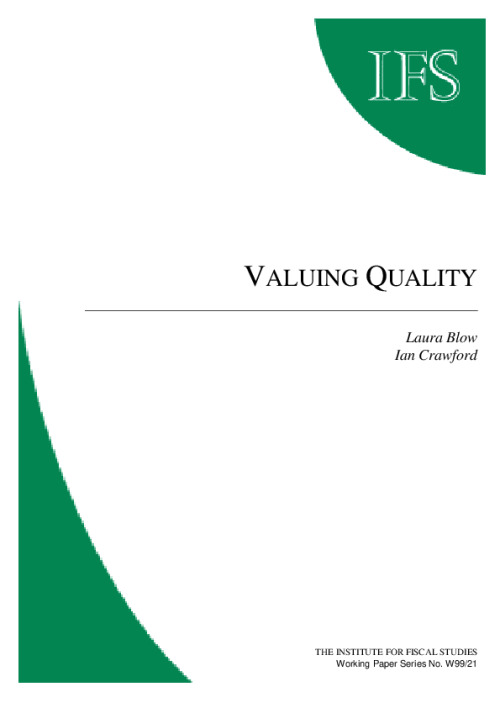Downloads

wp9921.pdf
PDF | 266.73 KB
This paper uses revealed preference restrictions and nonparametric statistical methods to bound a quality-constant price series for a good that changes quality over time. Unlike the more usual hedonic regression techniques for estimating quality-adjusted prices, this method does not require us to observe the changing characteristics of the good or to assume a particular functional relationship between these characteristics and quality. To place a bound on quality change using revealed preference conditions we assume that preferences are stable over time, that quality change occurs in one good or group of goods and that the direction of quality change is known.
Authors

Laura Blow

Ian Crawford
Working Paper details
- DOI
- 10.1920/wp.ifs.1999.9921
- Publisher
- IFS
Suggested citation
Blow, L and Crawford, I. (1999). Valuing quality. London: IFS. Available at: https://ifs.org.uk/publications/valuing-quality (accessed: 30 June 2024).
More from IFS
Understand this issue

Sure Start achieved its aims, then we threw it away
15 April 2024

Social mobility and wealth
12 December 2023

How important is the Bank of Mum and Dad?
15 December 2023
Policy analysis

How do the last five years measure up on levelling up?
19 June 2024

Making mortgage guarantees permanent will help some first-time buyers, but only if they can afford a bigger mortgage
6 June 2024

What has happened to earnings since 2019?
31 May 2024
Academic research

Income inequality in Ireland, 1987–2019
28 June 2024

Components of the evolution of income inequality in Sweden, 1990–2021
28 June 2024

Labour market inequality and the changing life cycle profile of male and female wages
15 April 2024